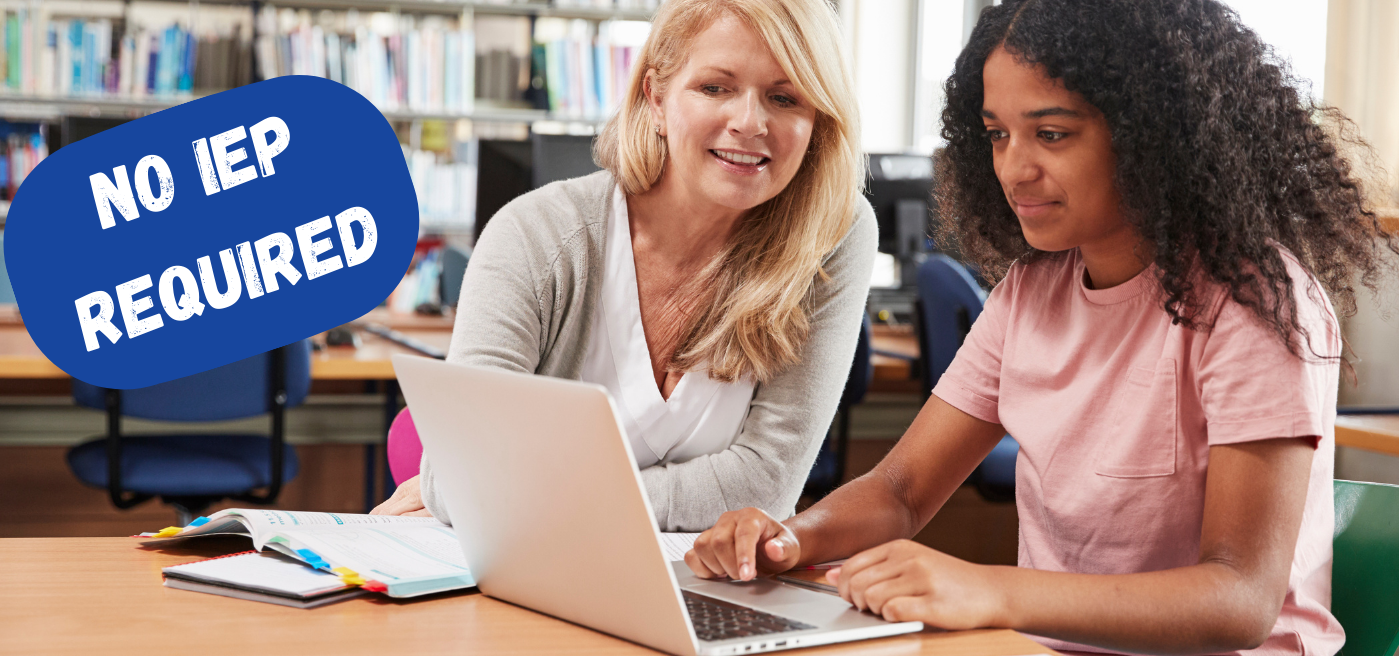For countless dedicated parents and teachers, there’s a feeling of urgency, sometimes mixed with frustration, to provide reading accommodations for students with learning disabilities. A common belief is that the only path to meaningful reading support, like accessible books, is through a formal Individualized Education Program (IEP). But what if that wait wasn’t necessary?
The good news is, it’s not! A widespread misconception in education is that an IEP is the only key that unlocks accommodations. For students with dyslexia, visual impairments, cerebral palsy, or other disabilities, the pathways to get the books they need in formats they can use are open right now—no IEP required.
Don’t let waiting widen the gap
For students with learning disabilities, a classroom can be overwhelming when their needs are not met. While waiting for formal evaluations and meetings to establish an IEP, the learning gap can widen, and a child’s confidence and motivation can plummet. This waiting period is not just a pause; it can actively hinder a student’s progress.
A solution is to provide access to grade-level content immediately. By getting accessible reading tools into their hands, you empower students to keep pace with their peers, participate in class discussions, and complete their homework. And if a student has already fallen behind, the right tools can help them not only catch up but thrive.
How is this possible? The law is on your side
So, how can students get these resources without an IEP? The answer lies not in special education law, but in U.S. copyright law. The Chafee Amendment establishes that if a person has a disability that prevents them from reading standard printed text, they have the right to access published works in accessible formats for free.
This is a powerful distinction. It means access is dictated by the student’s disability, not their educational plan. All that’s needed is a verification of that disability from a “competent authority”—that can include anyone from general education teachers, special education teachers, reading specialists, school psychologists, doctors, and other qualified professionals.
This is where a free service like Bookshare comes in. Teachers or parents can sign up their student by providing proof of a qualifying disability. Once submitted, that student gains immediate access to a massive library of textbooks, bestsellers, and fun books they can read on their own.
Don’t wait, sign up today
Bookshare provides free access to its ebooks for all U.S. schools and qualified students. This membership allows schools to offer any book from the collection to eligible students at no cost. Parents can also sign their child up for a free individual membership to complement a school account.
With a membership, students will get these immediate benefits:
- An accessible reading experience: students can customize their reading experience with audio narration, word-level and sentence highlighting, adjustable text sizes, and different color background and text combinations to fit their unique learning style.
- Learning gaps begin to close: students will spend less time struggling with inaccessible texts and more time comprehending the material, building knowledge, and engaging with the content.
- Build independence and confidence: access to the same books as their peers fosters not only literacy skills but also the confidence and independence to take control of their own learning.
Don’t wait. If you recognize your student’s accessibility needs, you have the power to help them today. No IEP required.
To learn more and sign up for free, visit Bookshare.

